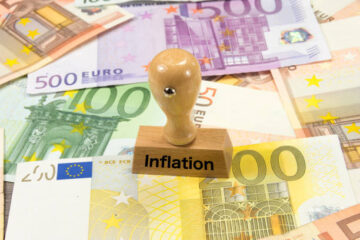A survey says 43% of Americans feel that their financial situation is worse now compared to a year ago.
Blaming President Joseph Biden for the economy’s state is a frequent lawmaker talking point–Sen. Rick Scott (R-Fla.) has repeatedly said that Biden’s “terrible economy” is “killing the American Dream” while Ted Cruz (R-Texas) has been trying to popularize the hashtag “Bidenflation.”
When gas prices were at their peak last spring, 22% of Americans also felt that President Joseph Biden was “completely” or “mostly” responsible. For those self-identifying as Republicans, that number jumped to 67%.
The sentiment coincides with decreased confidence in one’s financial situation. After polling 2,000 American adults, personal finance site Bankrate found that 43% feel that their financial situation is worse now than it was two years ago when Biden was elected.
The survey said 39% believed their finances are the same while a further 18% think that they improved to some extent. Political leanings were also correlated with feeling worse about one’s finances as 56% of Republicans said their situation got worse while only 30% of Democrats did so.
Blaming Biden Depends on Your Politics
Out of those 43% whose finances got worse, nearly seven in 10 see Biden as at least “moderately” responsible. The survey said 71% believed Democrats in Congress were to blame while 54% were also blaming the Republicans (respondents could select multiple causes for their sentiments.)
While 93% of Republicans said Biden was in some degree responsible for their current financial situation, only 30% of Democrats said the same.
Out of all who believe their finances got worse, 48% said Biden was “a great deal” to blame.
“Americans were three times as likely to say Biden was to blame for their worsened finances than Republicans in Congress, at 48% versus 16%,” the study’s authors write.
Rising inflation, which rose by 8.2% in September, is a driving cause of concern and negative sentiments for many respondents–after seeing their dollar go less far than it used to, many are feeling scared about their financial future and looking for a cause of it.
Fear Of Inflation Is Driving Political Sentiment
“In our highly polarized political environment, and in the context of a complicated and highly dynamic economic situation, many people naturally gravitate toward assigning blame or credit to elected officials,” Mark Hamrick, a senior economic analyst at Bankrate, said in a statement. “The reality is much more complicated than that. The causes of high inflation are multifaceted, including forces stretching around the world.”
When polled about their outlook for the future, the largest number of Americans do not expect their finances to change one way or the other in the next two years. Compared to the latter’s 42%, 32% expect them to worsen and 26% take the optimistic route and think they will get better.
Democrats and those under 40 were, at a respective 36% and 34%, more likely to be optimistic than the general population. Reversely, only 19% of Republicans expect their finances to get better in the coming two years.
This, in turn, allows certain politicians to sweep in with promises of “fixing” the ecnomy by cutting social spending–a driving force that, Bankrate warns, threatens to be a driving force in the 2024 election.
“If a recession does emerge as many fear and expect, it will again fall to elected officials to prescribe and vote on possible legislative responses,” Hamrick said. “In turn, many of these factors may have impacts going into the next general/presidential election.”


